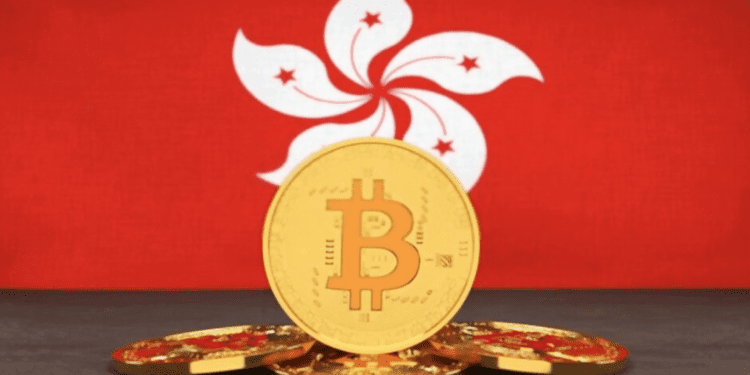Hong Kong has recently been considering legalizing cryptocurrency trading by retail investors. The country’s finance chief teased the news at a conference to kick off the week. The meeting being held aimed at rebuilding the image of the Chinese economy.
This news comes when China has practically banned all crypto activities in their country, so Hong Kong is taking the full brunt of fixing the country’s image towards the blockchain industry. They are achieving this by trying to lessen the hold of the regulations and make their way towards crypto-related businesses that were dropped due to the strict rules.
The image of the country first took a staggering hit due to the effects of the pandemic, with half of the world pointing accusing fingers towards them. Then there were strict pandemic controls and a political crackdown that hammered the Asian finance hub’s economy. It also impacted the severing of ties between the finance sector and talents that had brought in cash inflow, which Hong Kong is now working towards reversing.
Hong Kong is looking to create an inclusive society for the global community of talents with innovations that would help the economy, such as virtual asset businesses.
The country is trying to signal to the world that they are ready to return to business. Hong Kong plans to launch a consultation explaining exactly how they would explore a retail strategy for crypto and how it’ll regulate the access cryptocurrency would receive. There is also news of Hong Kong being ready to look into property rights revolving around tokenized assets and just how smart legal contracts are.
Japan currently has restrictions on how many exchanges on who can trade, with it being limited to clients with portfolios with at least $1 million. Easing up the rules on cryptocurrency retail trading would encourage more citizens of the country to invest in crypto and other digital assets.
China had once been in the limelight as one of the biggest markets for cryptocurrencies, but that was stopped when transactions were banned in 2021.
While China may be out, more Asian countries like Singapore and Japan have been strengthening their rules regarding retail transactions or relaxing some of their restrictive laws on listening to specific tokens. Hong Kong was also viewed through the lens of a crypto hub as it had a position as a gateway for China to access the international market space.
How Hong Kong Legalizing Crypto Trading Would Impact Asia Positively
Asia is one continent that has always been accepting of crypto, more countries in Asia have found a way to regulate cryptocurrency in their financial sectors than other parts of the world, and Asia has embraced crypto.
Hong Kong creating more rules to regulate cryptocurrency and include more retail trading will open up a world for China to consider accepting cryptocurrency back into their economy. This is fair, especially if it does well to ease the aftermath of the pandemic on the country’s financial sector.
Hong Kong embracing and legalizing crypto would also encourage more countries in Asia to be open toward cryptocurrency trading. Once they see that it can be regulated correctly and included in day-to-day activities, more countries in the continent will also venture into crypto trading.
Asia suffered a lot from the brunt of the pandemic as fingers were pointed towards them as the cause of the pandemic. Most countries had to create strict laws on their lands, which tightened the flow of several sources of income. They are only now recovering from and trying to reverse the effect of the strict laws made during the earlier months of the pandemic, as countries continue to lift bans placed earlier to protect citizens.
Conclusion
Suppose Hong Kong succeeds in regulating the laws surrounding cryptocurrencies in the country and can successfully incorporate a culture of regulated retail trading. This means it would be a great deal for Hong Kong and its neighboring countries as they would find more courage to include other aspects of digital assets into their ecosystem.
It would also help give wealth to the parts of the country that hit the pandemic.














